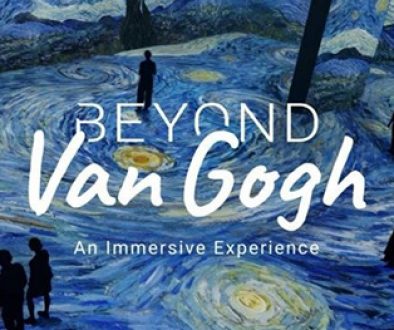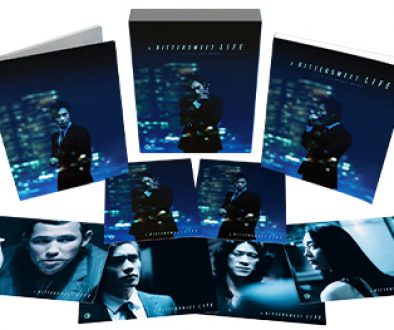Review: Ingmar Bergman Volume One
Several years ago my brother refused to watch On the Waterfront because it was in black and white. No matter how hard I tried to persuade him, the fact that it was ‘old’ made him impervious to it.
I think a lot of people see the title BFI and feel that whatever the film is, it’s bound to be high art, foreign and dare I say…boring. Then there are the essays and the extras, all leaning towards the academic, with people using long words and going on about stuff that makes no sense, I mean, it’s just a film!
It always makes me feel more than a bit miserable when film fans shut themselves off from films like the ones in this BFI Box set. How many of us know the name Ingmar Bergman because of The Seventh Seal, and how many of us only know about that film because of Bill and Ted’s Excellent Adventure?
I am on a quest. A BFI quest if you will, to embrace these films for you, to give you NON-academic reviews.
Why?
Because I want you, the reader, to not miss out on some amazing cinema. I want you to see that these films are NOT scary, foreign and the ‘unknown’, but rather tales of people. Stories we can all relate to, and most of all, they are in the true sense of cinema and film, entertaining.
Come with me now on a journey through Bergman’s early films, let me open your eyes to heartaches, and love, murders and sex of 1940s Sweden.
Torment was Ingmar Bergman’s first produced screenplay for the famous Swedish filmmaker Alf Sjöberg. It’s a coming of age film about a young man; Jan Erik Widgren (Alf Kjellin) from a middle class family about to take his final exams in an all-male school.
The Latin teacher, nicknamed Caligula (Stig Jarrell), is especially sadistic and bullies all the boys, particulary Widgren.
Late one night Widgren meets a very drunk young girl; Bertha (Mai Zetterling), who he knows from the local shop, and on taking her home she tells him that she’s being persecuted by some unknown man who won’t leave her alone, but visits her and mentally tortures her. It’s never clear why he does this other than to have total power over a young girl and the story isn’t shy about hinting this torture is sexual.
The film is quite an unsettling watch, with Zetterling looking very young and innocent, her large eyes constantly moist. It’s obvious that Caligula has groomed and abused Bertha from a young age.
The emotional torture of Widgren is palpable, but so is his attitude towards Bertha, sleeping with her, but then discarding her, yet another man using her while being tortured alongside her by the same man.
Crisis
Bergman’’s directorial debut, based on the Danish radio play Moderhjertet (translated as The Mother Animal) by Leck Fischer.
Another young girl at the centre of this story, Nelly (Inga Landgre), an 18 year old who lives in genteel poverty in a small village with her mother Ingeborg (Dagny Lind).
Nelly is aware that she isn’t her birth mother, who is in fact, aunt Jenny who lives in the city and occasionally writes. Nelly is somewhat spoilt and has a ‘Jane Austin’s Emma’ type relationship with much older lodger Ulf (and he really does look like her dad rather than an age appropriate suitor). He does seem to sex-pest her quite a bit, and she, being 18, just wants to go out and have fun.
Jenny returns dressed in what I’d imagine was a ‘rich but tarty’ way with an offer to take Nelly to the city and let her work in her beauty palour.
Now this would be a run of the mill ‘soap’ like a Douglas Sirk film if it wasn’t for the introduction of Jack (Stig Olin), who’s back story and actual story-arc is again, rather disturbing even by modern standards (no spoilers but sexual grooming underpins this story too).
Olin’s performance elevates this from soap opera to grit, and you do forget that the central story revolves around a ‘good’ and a ‘bad’ mother. I was more interested in Jack’s involvement with Nelly and Jenny.
After the inevitable tragedy Nelly must decide whether to remain there or to return to the small town.
Music in Darkness
Based on Dagmar Edqvist’s novel of the same name, the screenplay was written by Berman and Edqvist.
Middle class pianist Bengt Vyldeke (Birer Malmsteen) instantly shows the audience that he’s a kindly empathetic man by trying to save a cat that’s wandered onto the firing range he’s currently stationed at in 40’s Sweden.
Unfortunately this act of kindness gets him shot in the face, resulting in his blindness.
Yep it’s a bit bleak.
He has to go and live with his aunty and is helped by his sister because his fiancée Blanche has called off their engagement because he’s now blind and all his friends have abandoned him.
Luckily a local young woman’s father dies leaving her with no option to be under the local vicars’ guardianship. She moves in with Benght and his aunty and becomes their servant.
Mai Zetterling appears as Ingrid the maid and is again incandescently beautiful. Ingrid becomes Benght’s constant companion and help and falls for him, and she believes this feeling is reciprocated until she overhears a conversation between Bengt and his aunt where he calls her the ‘little maid’. She is heartbroken and goes off to college.
Again this is somewhat Sirk like in story, rather melodramatic and full of angst.
EVA
As a child Bo is wilful and disobedient, it seems he’s jealous of his mother’s pregnancy and feels repulsed by his father. He runs away and joins up with a travelling band, one of the men has a daughter who is blind. Bo takes the blind girl and runs away again, stealing a train, only to crash it off the tracks killing the blind girl.
As an adult, Bo (Birger Malmsten) returns home from military service where he takes up with Eva (Eva Stilberg), becoming engaged. He then leaves for the city and moves in with his friend Göran (Stig Olin) and his wife.
This episode in Bo’s life is like a fever dream, where Goran encourages Bo to have sex with his wife, he then hallucinates he murders Goran to be with his wife (Eva Dahlbeck). Eva turns up, and they marry, eventually living on a remote island.
This films narrative gallops along like the last series of Game of Thrones. It’s all very existential with Bo finding peace and a purpose to his life with the birth of his son.
Port of Call
Berit (Nine Christine Jonsson) throws herself into the sea at the docks at the very beginning of this film.
Quite a jolt!
She works in a local factory and obviously has emotional problems from childhood and her mentally ill father (who wanted to kill her) exacerbated by her relationship with her horrible mother. She has been in and out of reformatory’s and is only allowed to live freely on the condition she lives with her mum.
She meets stevedore Gösta at a dance and sleeps with him. They meet again, and enter into a relationship, but her past bothers him. Can he cope with the fact that she has slept with a lot of men?
Much like Rome Open City, this is a Swedish Neo-Realistic film. Acting alongside seemingly real people on the docks, this is a post war story of despair where Gosta seems to be a stoic and viewer of Berit’s downfall.
For me this is the first film we see Bergman come into his own, and its recognisibly a Bergman film.
Prison
This is almost like a docu-film in part. The narrative seems to be fundamentally philosophical (whilst still being quite soap opera-like) about good and evil.
It opens with an older man who has recently been in hospital (perhaps a mental hospital) who has an idea for a film. He takes his idea to film director Martin (Hasse Ekman).
His idea is that the Devil has taken over the world, and has banned atomic weapons and punishes those who perpetrated the nuclear slaughter in Hiroshima, but otherwise allows things to carry on pretty much as before.
Martin tells the story to his brother Tomas (who is played by Bergman fave Birger Malmsten) and his wife Sofi (Eva Henning). Tomas (who is a writer), thinks he can relate Paul’s idea of Hell on earth to an article he has been working on about a teenage prostitute, Birgitta Carolina (Doris Svedlund).
The film moves six months forward in time and shows Birgitta after giving birth to a child. Her lover Peter (yet another Bergman fave Stig Olin who is now blonde), who is also her pimp, wants to make the baby ‘disappear’ and he and his sister Linnea (Irma Christenson) force Birgitta to give them the baby.
The story shifts between these two families and how they intertwine. With the drowned baby found the story ends on a typically Bergmanesque despairing note, where there is no God and if you’re good (like Birgitta) you get used and abused.
It amazes me that a film like this could be made in 1948. I can’t imagine Hollywood would produce anything so honest and shocking. This is the first film that Bergman had full autonomy over, and although it’s a bit of a gruelling watch because of it’s subject matter, the performances are great and it’s definitely not boring!
Thirst
Ballerina Ruth/Rut (Eva Henning) and her husband Bertil (Birger malmsteen) travel home by train after a holiday. They argue because of Ruth’s drinking.
We see flashbacks to Ruth’s previous affair with married and very regimented and bossy officer Raoul, who believes having two women at the same time is the way to live.
She beomes pregnant and he, not believing its his child, makes her have a termination resulting in her becoming sterile.
Now all the stories begin to intertwine with Rut’s friend and co-dancer Valborg (Mimi Nelson), disgusted by men, is a lesbian, while Bertil is still haunted by an earlier affair with widow Viola, who we see escaping from a sadistic psychiatrist (who looks like a devil worshipper). She then meets Valborg (the lesbian), who openly tries to seduce her, which drives her to suicide.
Shame that Mimi plays gay as a bit deranged, mad eyed and desperate.
Meanwhile, arguments between Rut and Bertil escalate, and Bertil seemingly kills Rut after a fight. Bertil awakens and realises that he dreamed it all. The couple decide to give their marriage another chance.
Actually just reading that back to myself, it sounds like a bit of a mad film doesn’t it? And I must admit I didn’t enjoy this one as much because it seems to have this weird ‘comedy’ undercurrent which doesn’t really hit the mark. Henning plays drunk beautifully in this but this is my least favourite out of the eight films.
Finally
To Joy (or rather not much joy until it’s too late)
Stig (Stig Olin) and Marta (Marj Britt Nilssson) are two violinists in the same orchestra.
He’s very attracted to her wants to sleep with her, but she wants more than the odd bunk up, she wants a relationship and marriage. He’s loveable, but like most of the men in Bergman’s films, he’s selfish.
They fall in love and she finally agrees to sex, and he agrees to marriage.
Just before the wedding she finds out she’s pregnant, causing selfish man-child Stig to explode and blame her for becoming pregnant and ruining everything. A child will interfere with his personal life and his career. They argue but end up marrying anyway and appear to be happy at first, but the inevitable happens and Stig starts cheating with a woman whose husband seems to encourage the affair. Marta refuses to have sex with Stig and is repulsed by him when she finds out about the affair.
There are long interludes of music inbetween each segment of story, with the orchestra rehearsing, using Mozart, Beethoven and Mendelssohn to underline the emotion beautifully.
I’d never seen any of these films before and have to admit it was a bit of a slog to get through 8 of them for review (resulting in 8 pages!).
They touch on dark subjects, and can be quite a difficult watch with murder, baby killing, drink, drugs, infidelity, selfish men and prostitution. But all of them have been without a doubt an enjoyable watch (yes, enjoyable), and best of all is the discovery of the actor Stig Olin, who after seeing these films is without a doubt now one of my favourite actors.
This is an amazing box set from the BFI and we at 60MW are looking forward to the next instalment.
The films:
- Torment (Dir. Alf Sjöberg | Scr. Ingmar Bergman, 1944)
- Crisis (1946)
- Eva (Dir. Gustaf Molander | Scr. Ingmar Bergman, 1948
- Music in Darkness (1948)
- Port of Call (1948)
- Prison (1949)
- Thirst(1949)
- To Joy (1950)
- 5-Blu-ray set featuring 2K restorations of all 8 films
- Ingmar Bergman: First Cries, Early Whispers (2021, 20 mins): a new video essay by writer, filmmaker and film journalist Leigh Singer
- Perfect-bound book featuring new essays by Jan Holmberg (CEO of the Ingmar Bergman Foundation), Philip Kemp, Geoff Andrew, Jessica Kiang, Alexandra Heller-Nicholas, Kat Ellinger, and Laura Hubner
- Limited edition (5,000 units)
- Newly commissioned artwork by Andrew Bannister
- 5-Blu-ray set featuring 2K restorations of all 8 films
- Ingmar Bergman: First Cries, Early Whispers (2021, 20 mins): a new video essay by writer, filmmaker and film journalist Leigh Singer
- Perfect-bound book featuring new essays by Jan Holmberg (CEO of the Ingmar Bergman Foundation), Philip Kemp, Geoff Andrew, Jessica Kiang, Alexandra Heller-Nicholas, Kat Ellinger, and Laura Hubner
- Limited edition (5,000 units)
- Newly commissioned artwork by Andrew Bannister
- 5-Blu-ray set featuring 2K restorations of all 8 films
- Ingmar Bergman: First Cries, Early Whispers (2021, 20 mins): a new video essay by writer, filmmaker and film journalist Leigh Singer
- Perfect-bound book featuring new essays by Jan Holmberg (CEO of the Ingmar Bergman Foundation), Philip Kemp, Geoff Andrew, Jessica Kiang, Alexandra Heller-Nicholas, Kat Ellinger, and Laura Hubner
- Limited edition (5,000 units)
- Newly commissioned artwork by Andrew Bannister
Review by Tina from discs kindly supplied by BFI.







